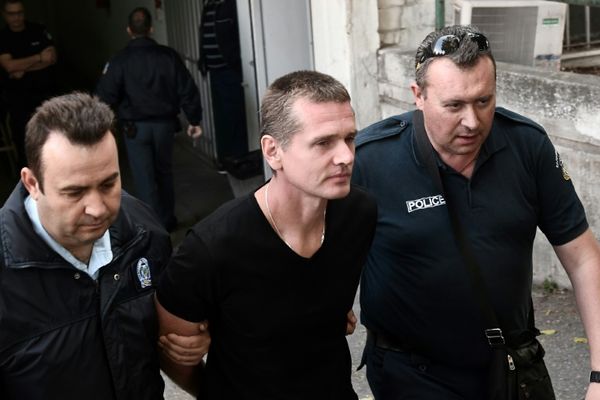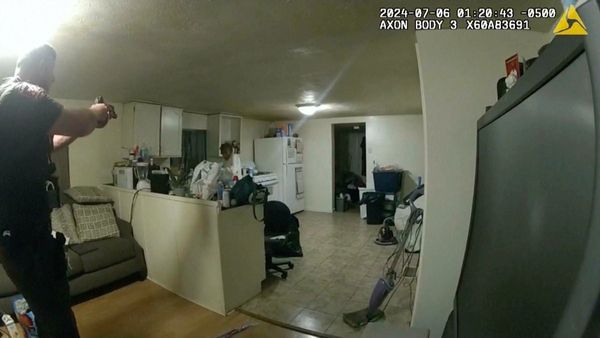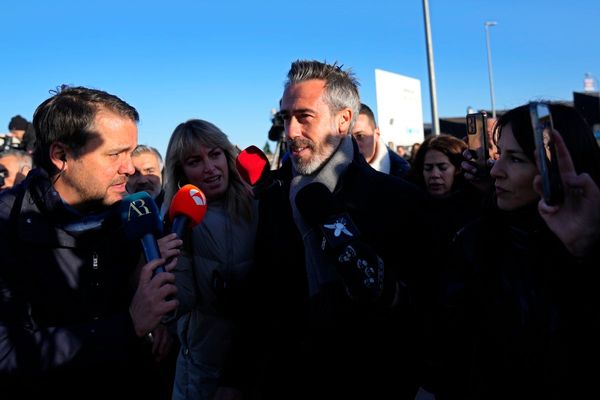
Whether she is talking about the Australian Open fans who mimicked her grunting here last year or her former coaches back home who used to dismiss her chances of a professional career, Aryna Sabalenka is not one to forgive and forget.
The 20-year-old from Belarus, who is on such a hot streak that she is one of the favourites to win the title here, had never heard spectators mock her on-court grunting until she played the local favourite, Ashleigh Barty, here 12 months ago.
“I remember this situation,” Sabalenka said on Saturday. “It was the first time it had happened and I was like: ‘Really? Guys, come on, you cannot do that.’ They were drinking beer and they weren’t nice to me. I was so disappointed. I was like: ‘Next year I will come back and all of you will support me 100 per cent.’ We will see this year if I am right or not.”
Sabalenka also has little time for those coaches at the national tennis academy in Minsk who did not consider her much of a prospect as a teenager. “They thought I was stupid, that I had no chance to play at this level,” she said. “And now they’re all nice to me! I don’t really want to speak to them because I know what they were saying about me.”
Sabalenka can deliver verbal volleys with as much power as she smacks a tennis ball, but it would be wrong to dismiss her as cold-hearted and sour-faced. The spirited Belarusian has a lively sense of humour and a healthy appreciation of how much she has to learn in the game.

Nevertheless, her feistiness is clearly one of the attributes that make her the formidable player she is. For example, you get the impression that there is no love lost between Sabalenka and Victoria Azarenka, who became the first Belarusian woman to win a Grand Slam title with the first of her two triumphs here seven years ago.
Sabalenka did not grow up idolising any other players. She brushes aside any suggestion that Azarenka had been an inspiration for her and instead says that she enjoyed watching Serena Williams and Maria Sharapova, “though it wasn’t like I was a big fan of theirs”.
She recalled: “When I was maybe 12 a friend of my dad’s came to me and said: ‘Oh, you’re a future Sharapova.’ I was so angry. I said: ‘I’m a future Sabalenka, not a future Sharapova’.”
When Sabalenka arrived here 12 months ago she was the world No 66. Even at the start of the grass-court season she was still ranked outside the world’s top 40, but the Nature Valley International at Eastbourne proved a major turning point. Sabalenka beat four higher-ranked players in succession at Devonshire Park – Julia Goerges, Elise Mertens, Karolina Pliskova and Agnieszka Radwanska – before losing to Caroline Wozniacki in the final.
By the end of the year she had won titles at New Haven and Wuhan and added Wozniacki, Petra Kvitova and Elina Svitolina to a growing list of top 10 victims. Since Wimbledon only Naomi Osaka has won more world ranking points than Sabalenka, who kicked off her 2019 campaign by winning the title in Shenzhen. She now stands at No 11 in the rankings.
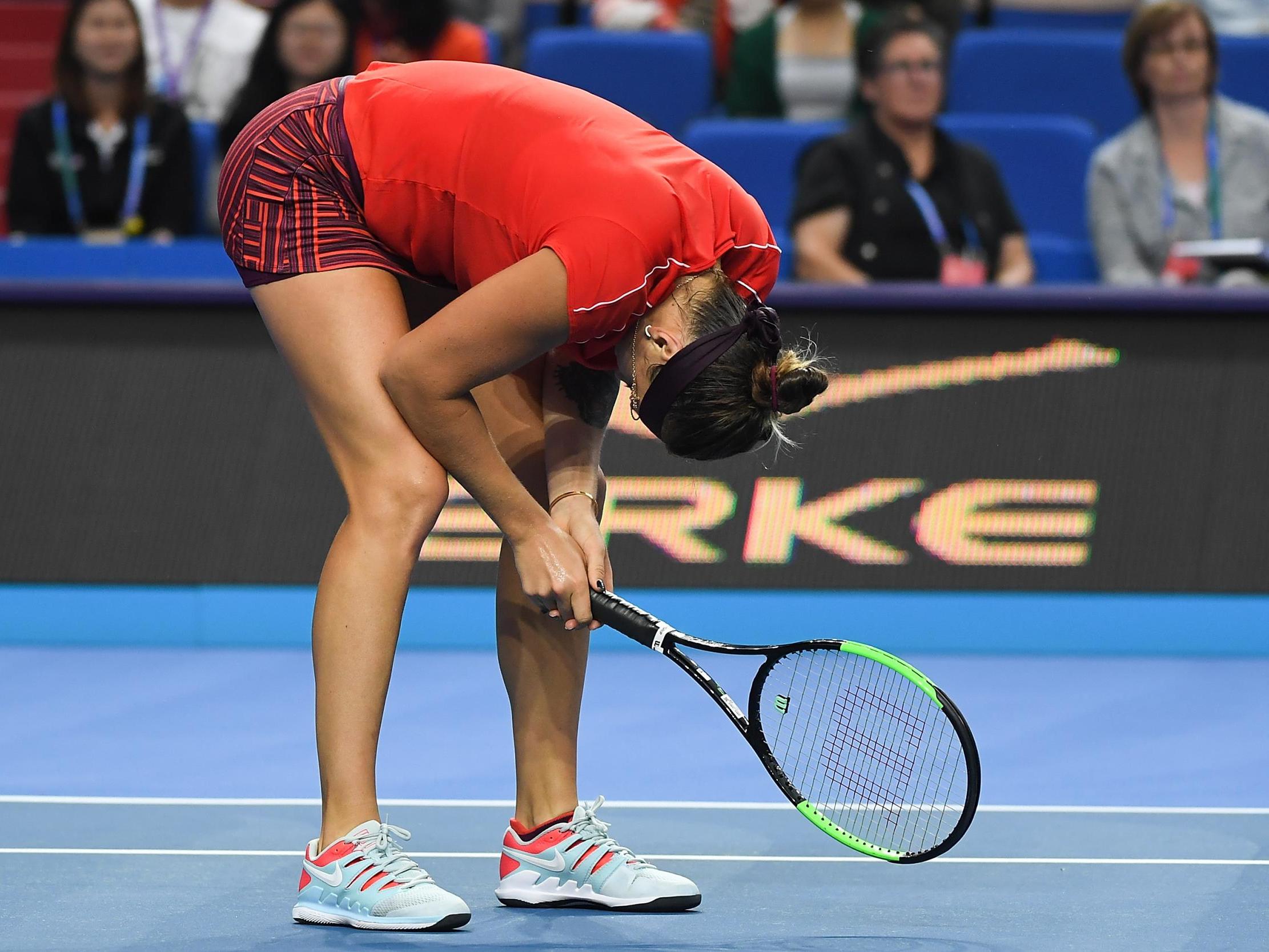
Sabalenka gives much of the credit for her remarkable run to her coach, Dmitry Tursunov, a former top 20 player whose own hot-headed nature – he was one of the sport’s biggest racket-smashers – and big-hitting game no doubt help him to operate on the same wavelength as his charge.
“When he played he was the same as me – the same style of game and the same mind – so I think he understands me 100 per cent, what I’m thinking about on the court,” Sabalenka said. “My coaches used to tell me that I didn’t need to think on the court. I just had to hit the ball. If you see the ball, hit it. That’s what I was doing.”
She said Tursunov, in contrast, has helped to give her a better understanding of the tactical side of the game. “You always need to learn and I’m still just at the beginning,” she said. “There are a lot of things I can improve, especially my movement, my thinking on the court, the mental side of matches.”
While Sabalenka has been learning how to control her emotions – she says she has put her own racket-smashing past behind her – she knows that she can do more. She regrets the moment in last year’s China Open – for which she came in for widespread criticism on social media – when she called for more water and threw a bottle in the direction of a ballkid in frustration.
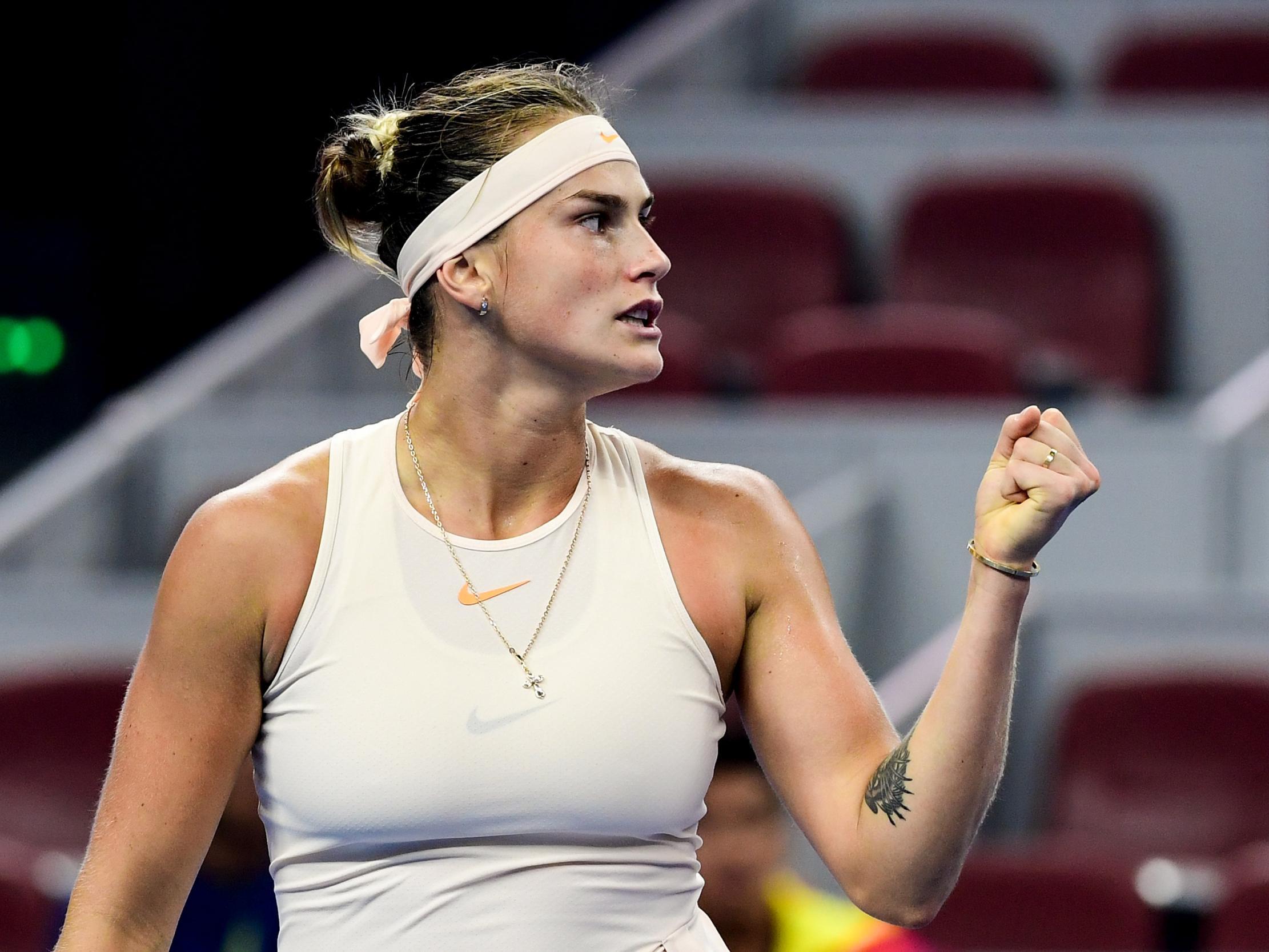
“A lot of haters wrote a lot of really not nice things,” she said. “I have been so disappointed because they don’t really understand that you can lose your mind on the court, and you’re not really that bad kind of person. It’s like you lose it and then you’re really sorry to the guy, but there’s no time to be sorry, you’re just focused on your game and then after the game you can say sorry to him.
“But sometimes you don’t even remember, like when you throw your racket, when you look at your coach like you want to kill him. It’s a big part of the game which you can improve and it really helps, especially me, so we did some work in the pre-season about my mind game. Hopefully I will do better this year.”
As for the grunting, Sabalenka said it had always come naturally to her and she found it difficult to control. “Sometimes I can stop screaming at all, sometimes I scream like a crazy,” she said. “But it is how it is. I am so sorry for the people who don’t really like it. But I’ll improve at this tournament. I really want [the spectators] to enjoy my game and not be sitting there putting in their earplugs.”

